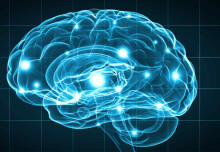

Brain Sciences progress
Five breakthroughs in Brain Sciences at Imperial
From new surgical techniques and treatments to studies on neurodegenerative disease, here are five of the top brain science stories from this year.



Five breakthroughs in Brain Sciences at Imperial
From new surgical techniques and treatments to studies on neurodegenerative disease, here are five of the top brain science stories from this year.


Inter-university programme will examine the role of circadian rhythms in ageing
The CircadiAgeing Research programme has been awarded £4.4million by the BBSRC.


‘Chemical metronome’ helps the brain to keep time
Imperial researchers uncover a ‘chemical metronome’ in the brain, which helps to synchronise the master clock telling us when it’s time to sleep.


Men at high risk of heart disease face earlier brain health decline than women
Men at risk of cardiovascular disease may develop cognitive conditions up to a decade before similarly at-risk women


Generous gift launches study to support research on Alzheimer’s disease
Imperial researchers extend study on exploring markers associated with Alzheimer’s disease thanks to an exceptional donation from Gates Ventures.


Imperial joins new Doctoral Training Centre funded by Alzheimer’s Society
Led by the University of Manchester, the centre will support and nurture dementia researchers at the start of their career.


IGHI launches the first Global Health Summer School for Year 13 Students
Last week, the Institute of Global Health Innovation (IGHI) hosted its first Global Health Summer School for 22 Year-13 students from London schools


Scientists find sleep may not clear brain toxins
The brain’s ability to rid itself of toxins may actually be reduced during sleep, contrary to the leading scientific theory.


Reduced clearance of damaged microglia contributes to Alzheimer’s progression
The research provides insights into how age-related cell senescence contributes to the progression of Alzheimer's disease.


Essential clock gene plays key role in neuroprotective pathways
A new study offers deeper insight into how a neuroprotective pathway is regulated both by temperature and the body clock.